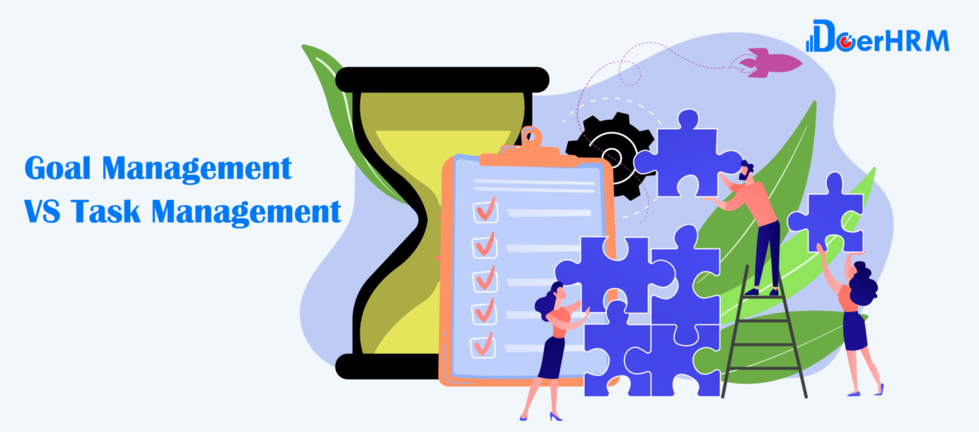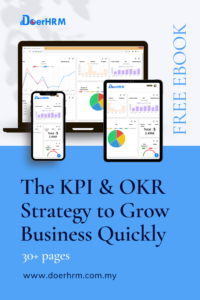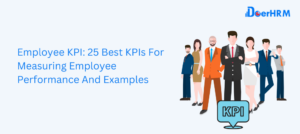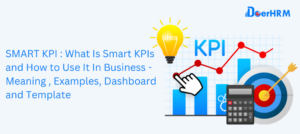If you want your business to grow, you need to have a reliable system that can help you set and keep track of your goals. Defining goals for the entire company as well as for each individual employee can set up your business for success.
However, achieving business goals is not that easy. Many companies struggle to define, manage, and reach their goals:
To ensure that they achieve their business goals, companies employ goal management processes to help them manage their objectives. However, only 20% of managers believe that the goal management system that they have is effective.
To address this issue, some companies also have task management systems in place to not only keep track of their goals, but also of their tasks. But what is the difference between goal management and task management? And why is it important for companies to have systems for both? These questions are answered below.
What is Goal Management?
Goal management is the process of defining and keeping track of short-term and long-term goals so employees can better understand how they can help the company grow. Goals describe where a company wants to go and how it wants to grow in the future.
These goals usually start at the top of the company. It is important that senior management first clearly define the priorities of the company, so they can then clearly communicate these goals to all their employees. According to Barney and Griffin, communicating company goals to employees have four major benefits:
1. They provide guidance and direction
2. They facilitate planning
3. They motivate and inspire employees
4. They help organizations evaluate and control performance
Most business experts recommend setting S.M.A.R.T. goals: Specific, Measurable, Attainable, Relevant, and Time-Based. Google, however, is famous for encouraging both its management and employees to set ambitious rather than attainable goals. Their philosophy is rooted in the belief that when employees are faced with an ambitious goal, they are motivated to work harder than if faced with an easily attainable goal.
What is Task Management?
Task management is a process that allows businesses to conceptualize, align, and keep track of tasks, both at the individual and departmental levels. Tasks are different from but are essential to goals. Tasks are the actions you need to take in order to achieve your objectives.
To illustrate it further, imagine task management and goal management as a one long road trip. Your goal is your destination, where you want to be. Tasks are the turns you have to make and the exits you have to take in order to get to your destination. Task management and goal management systems are the roads and highways that set up your business’ path to success.
Goals vs Tasks
As mentioned, goals describe where you want to be, while tasks are the things you have to do to get there.
For example, if one of your company’s objectives is “to be among the top 3 companies in the industry,” a goal for the marketing team could be to “increase the number of new customers by 30% by end of the year”. A task for an employee in the marketing team could then be to “book product demonstrations for 500 potential customers by November 30.”
Why your Company Needs Both
Goal management ensures that a company’s objectives are defined, and that every team and employee’s goal is ambitious, specific, and relevant to the company’s overall goals. Studies show that employees who are committed to a goal are more engaged and perform better in their work. When goals are clearly articulated, employees can better express their accomplishments to their managers. The managers, in turn, can have a better baseline to measure the progress of their employees.
However, despite having clearly defined goals, sometimes employees fail to achieve their goals because they don’t have the right tools to plan the steps needed to achieve those goals. This is why having a task management system on top of a goal management system can be beneficial. Individuals that have an action plan written down to achieve goals are 76% more likely to achieve them. Creating goal-oriented action plans, or tasks, can give employees a clear sense of direction towards their goals.
Use OKRs to Manage Both Goals and Tasks
Use OKRs To Objectives and Key Results, or OKR, combines goal management and task management into one system. Google famously used this system to manage their employees back when they were only a team of 40 people. Now, with over 100,000 employees, Google still heavily uses OKR.
With OKRs, teams and employees will need to come up with two things: objectives and key results. Objectives should answer the question “Where do I want to go?” while key results should answer “How do I know that I’ll get there?”
It is recommended that for every objective, there should be three to five measurable key results connected to it.
In this sense, goals are in the form of objectives, while tasks come in the form of key results. We can translate our example of a marketing goal and task that we saw earlier into an objective and key results.
Using a goal and a task
Team: Marketing team at a business-to-business company
Goal: Increase the number of new customers by 30% by end of the year
Task: Book product demonstrations for 500 potential customers by November 30
Using OKRs
Team: Marketing team at a business-to-business company
Objective: Increase the number of new customers by 30% by end of the year
Key Results:
- Book product demonstrations for 500 potential customers by November 3
- Set up a booth at 10 industry conferences by October 15
- Create a newsletter campaign and distribute to 5000 new leads by July 31
Every business can benefit from both goal management and task management systems. The beauty of OKRs is that it combines goal management and task management into one unified system. Unlike other systems, OKR is unique in that it challenges organizations and employees to be more ambitious, while providing a robust way to keep track of the company’s progress in achieving their goals.









